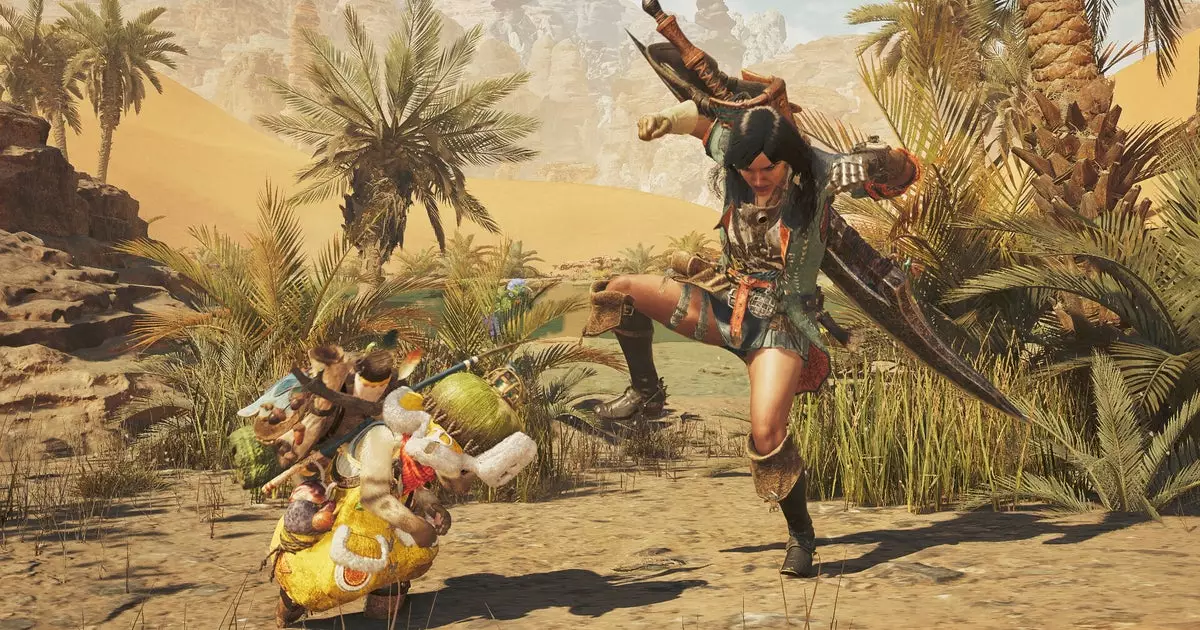Character creation in video games has become an integral part of the gaming experience, especially in RPGs, where the player’s avatar often reflects their immersive journey through fantastical realms. However, the time and effort spent curating the perfect character can vary significantly, especially when factoring in monetization strategies by game developers. This article delves into the intricacies of character creation, particularly focusing on recent developments in games like Monster Hunter Wilds and the implications of paid character modifications.
When players sit down to create their in-game avatars, the experience can often morph into a substantial time investment. The average player might spend around three hours meticulously shaping their character, with the understanding that this process is less of a frivolous distraction and more of an essential prelude to their adventure. In the case of creations within a Bethesda game, this time commitment may stretch even further—frequently taking upwards of four hours, as fans of the company will attest. Bethesda’s Creation Engine is notorious for its both compelling and infuriating crafting mechanisms that require patience and ingenuity.
This intrinsic value of character creation raises an important question: how much of that effort should be monetized? Should players be deemed worthy of alterations beyond their initial attempts, or should they shouldered the full costs associated with reshaping their avatars? Here, we begin to tread the murky waters of corporate monetization, where the joy of creativity can quickly become entangled with cost implications.
Recent news has emerged around Monster Hunter Wilds, which introduces the concept of character edit vouchers—an intriguing yet contentious addition to character customization. The idea of being able to modify a created character more than once is appealing, especially when players wish to experiment with new looks or personalities. However, the reality is that these alterations come at a price: £5.49, €6.99 or $6.99 for a three-voucher pack, allowing players a chance to “redo” their character presentation.
The outrage over such fees revolves around the notion that customization should be an inherent part of the game, not an extra charge. While the base game does provide one free voucher, the additional costs suggest a slippery slope towards increasingly monetized practices. Link this to the broader context of gaming in which companies like Capcom have already established a reputation for monetizing elements within gameplay—such as pre-purchased DLCs for Dragon’s Dogma 2 showing a pattern of selling convenience and survivability—that might raise a few brows within the gaming community.
At this point, it’s essential to consider the ethics surrounding paid character enhancement options. While players might feel that they are gaining access to unique elements which enhance their gaming experience, there lurks a disconcerting undercurrent that suggests exploitation of dedicated fans. After all, a character’s appearance often encapsulates a player’s identity within a game, turning individual avatars into symbols of pride and ownership.
Moreover, while Capcom’s latest offerings seem excessive, gamers are acutely aware of the industry’s status quo surrounding monetization. Cosmetic changes can carry a price, but players are generally more accepting of microtransactions associated with in-game aesthetic tweaks. Where loyalty diminishes, however, is when these tweaks become overly restrictive, effectively gatekeeping enjoyment behind additional financial commitments.
As players navigate this somewhat tumultuous intersection of creativity, identity, and monetization, the future of character customization remains to be seen. Will gaming companies strike a balance between offering extensive creative freedoms while still maintaining revenue streams? Or will the trend toward monetized customization continue to expand, potentially alienating a segment of the gaming community?
Ultimately, character creation symbolizes more than just choosing ageless pixels; it is a reflection of who the player is in the realm they inhabit. And as gaming evolves, so too must the approaches taken by game developers, with the hope that the joy of creating unique characters can remain largely intact without exorbitant costs looming over those exploring virtual worlds.

